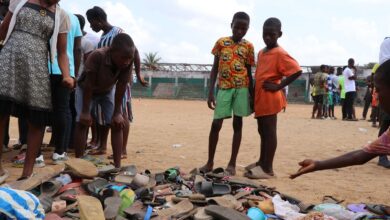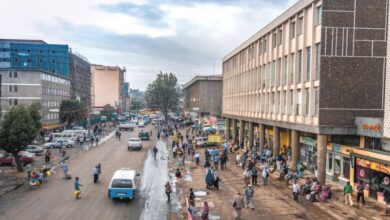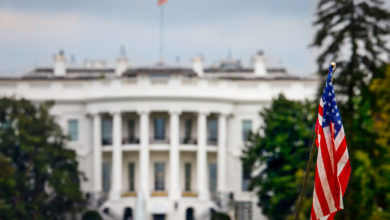Liberia
Liberia, in long form the Republic of Liberia, is a country in West Africa bordered to the south-southeast and to the west-southwest by the Atlantic Ocean, to the northwest by the Sierra Leone, to the north by Guinea and to the east by Côte d’Ivoire. The first African nation to gain independence in 1847, Liberia has been chaired since January 22, 2018 by George Weah. The country, which is among the ten least developed countries in the world (with a human development index of 0.329 in 2011), is part of ECOWAS.
Liberia’s history
In 1822, Liberia was founded by an American colonization society (The National Colonization Society of America, “to set up liberated black slaves there.) It is the beginning of tensions between the American-Liberians and the indigenous population. On July 26, 1847, Liberia became an independent republic. Censal suffrage allows the American-Liberian elite, represented by the True Whig party, to retain power for a century. In 1880, the neighboring kingdom of Medina was annexed. At the start of the 20th century, almost a third of the Liberian state budget came from the African workers’ tax, which the elite itself did not pay. This situation leads to uprisings suppressed with violence. Heavily in debt, Liberia remains aligned with London, Paris and Washington for questions of a diplomatic nature. The country experienced an economic recovery in the 1920s thanks to the sale of German properties confiscated during the war.
In 1931, the League of Nations (SDN) condemned the conditions of forced labor imposed on the natives by the American-Liberians on behalf of multinational corporations in the rubber industry. The scandal forced the government to resign. In 1936, the new government prohibited forced labor. However, the natives, deprived of the right to vote, remain second-class citizens. It was not until May 1945 that President William Tubman granted it to them. In 1960 Liberia entered a period of twenty years of prosperity, thanks to concessions offered to foreign multinationals (mainly American and German) for the exploitation of the country’s iron ore deposits. In 1971, William Tolbert, vice-president since 1951, became president after the death of President Tubman. The economic policy that he pursues increases the divide between American-Liberians and natives.
On April 12, 1980, the government of True Whig was overthrown in a coup led by Samuel Doe, a native who took power. President Tolbert is assassinated along with several ministers. Doe quickly established a dictatorship. In 1989, the National Patriotic Front of Liberia (NPFL), an opposition group under the authority of Charles Taylor, organized. The revolt quickly spread across the country without encountering serious resistance from government forces. Nevertheless, the advance is stopped at the gates of Monrovia. At the same time, members of the Economic Community of West African States (ECOWAS) decide to send its intervention force, ECOMOG, made up of 4,000 men.
In 1990, a disagreement within the NPFL led Prince Johnson to secede and create the Independent National Patriotic Front of Liberia (INPFL) with a thousand dissidents. On September 9, 1990, President Doe was assassinated by Prince Johnson during a visit to ECOMOG troops. In 1992, the NPFL attempted a new assault on Monrovia which ended in failure. The situation is getting bogged down. Warlords create new dissident factions. ECOWAS attempts to resolve the conflict remain unsuccessful. In 1996, all the factions accepted the holding of a vote under the aegis of ECOWAS. Between 1989 and 1997, the civil war claimed the lives of almost 150,000 people, most of them civilians, and brought about a total collapse of the state. On July 19, 1997, Charles Taylor was elected President of the Republic of Liberia with 75% of the votes. His slogan, during the political campaign that preceded the election, remained famous: “He killed my father, he killed my mother.” I will vote for him ”, signifying his intention in the event of failure to restore the country to fire and blood. In 1998, ECOMOG left Liberia. The second Liberian civil war begins a few months later.
In 2003, after the departure of Charles Taylor, a political transition was organized, under close control of the United Nations. On November 23, 2005, Ellen Johnson Sirleaf emerged victorious in the second round of the presidential election with 59.4%, compared to 40.6% for George Weah. She becomes the first woman democratically elected president of a country in Africa. She was sworn in on January 16, 2006 and thus officially took office. She was re-elected on November 8, 2011 with a score of 90.7%. The country is affected by Ebola fever, especially during the years 2014-2015. This epidemic kills thousands. On December 26, 2017, George Weah was elected with 61.5% of the votes by universal suffrage against the outgoing vice-president, Joseph Boakai, who obtained 38.5%.
Liberia’s politics
The longest presidency is that of William Tubman, in office from 1944 until his death in 1971. The shortest is that of James Skivring Smith, which lasts only two months, from November 4, 1871 to January 1, 1872. After the dissolution of the Republican party in 1876, True Whig, single party, and the American-Liberians, exert the capacity until the coup d’etat of 1980. On April 12, 1980, Samuel Doe takes power. The natives, the natives, are for the first time at the head of the country. Samuel Doe favors members of his ethnic group, the Krahns. The country has natural resources, such as gold, iron, wood, rubber, or even diamonds, but is torn apart by two successive civil wars, the first from 1989 to 1997, and the second from 1999 to 2003. Since the end of these civil wars, Liberia has been a multiparty republic with a presidential system, which has once again become a democracy. After the short presidencies of Moses Blah then Gyude Bryant, Ellen Johnson Sirleaf succeeds them, elected on two constituents, from January 2006 to January 2018, then George Weah. These changes at the head of the state are carried out peacefully and democratically. The government is based on the model of the United States with three equal branches legislative, executive, judicial, although the president occupies in fact a dominating place in the political landscape.
Liberia’s economy
Liberia is a tax haven, one of the peculiarities of which is to never have the names of natural persons appear on its business registers. Liberia is one of the flags of convenience. Liberia is home to the largest rubber plantation in the world (48,000 hectares) owned by Firestone, the American tire giant that has since 1988 become a subsidiary of the Japanese group Bridgestone. Liberia has iron ore resources in Mount Nimba on the border with Ivory Coast .
Liberia’s demography
The population of Liberia is estimated at 4,299,944 inhabitants in 2016, which represents a low density of 38.61 inhabitants per km2. In 1961, it amounted to 1.2 million inhabitants, Liberians. Between 1990 and 1995, fighting killed more than 200,000 people and 800,000 Liberians took refuge abroad (Côte d’Ivoire and Guinea), adding to the million internally displaced people. Due to the war, Liberia has a very high infant mortality rate (132 per 1,000).
In 2001, Liberia’s population was estimated at 3,230,000 and 3.32 million in 2003. It drops to around 2,800,000 as a result of the civil war between President Charles Taylor’s troops and the L.U.R.D. (Liberians united for reconciliation and democracy) supported by the United States and the regime of Guinea. There are 20,000 American-Liberians and the Lebanese community has 10,000 representatives. The indigenous population is made up of fifteen communities. The south of the country is dominated by the Krous, the rest of the population belongs to attached groups among others (Mendé, Koniaque, Kpelle, Vaïs, etc.). The population of Monrovia, the capital and main port of the country, has increased considerably due to the exodus of civilian populations fleeing the fighting: (720,000 inhabitants in 1994 compared to 425,000 in 1984). The second port, Buchanan (24,000 inhabitants in 1984), is connected by rail to the iron mines of Mount Nimba, whose production was stopped during the conflict.
Liberia’s education
The University of Liberia is located in Monrovia. Created in 1862, it is one of the oldest higher education establishments in Africa. The civil war seriously damaged the university in the 1990s. The restoration of the university began soon after the restoration of peace. Cuttington University was founded by the United States Episcopal Church in 1889. It is located in the Suakoko district, approximately 190 km north of Monrovia. According to UNESCO estimates in 2004, 65% of pupils are enrolled in primary school and only 24% in secondary school. Beyond the economic misery, the problem of child soldiers partly explains the low rate of enrollment in secondary school. But since Ms. Johnson-Sirleaf’s inauguration in 2006, tuition fees have been cut, resulting in a dramatic 82% increase in primary school enrollment in just two years.
Liberia’s languages
Liberia is a multilingual country where more than thirty languages are spoken. English, although the country’s official language, is only spoken by 15% of Liberians. None of the linguistic groups forms a distinguished majority. The languages of Liberia can be grouped into four linguistic families: the Mandingo languages, the Krou languages, the Mel languages and the divergent Gola language.
-
Liberia

A Stampede In Liberia’s Crusade Church Gathering Kills At Least 29 People
A stampede at a church gathering in Liberia’s capital Monrovia killed at least 29 people, including 11 children, on Wednesday…
Read More » -
Ethiopia

Ethiopia, Liberia Announces States Of Emergency To Stop Spread Of Coronavirus
Ethiopia’s Prime Minister Abiy Ahmed declared a state of emergency in the country on Wednesday to help curb the spread…
Read More » -
Benin

Coronavirus: Four More African Countries Report First Confirmed COVID 19 Cases
Four more African nations including Benin, Liberia, Somalia, and Tanzania have confirmed their first coronavirus cases on Monday, reported Reuters.…
Read More » -
Burkina Faso

The U.S. Considering Plan To Put New Travel Restrictions On African Countries
A new report suggests the United States government is planning to put stricter travel restrictions for countries whose nationals frequently…
Read More »

